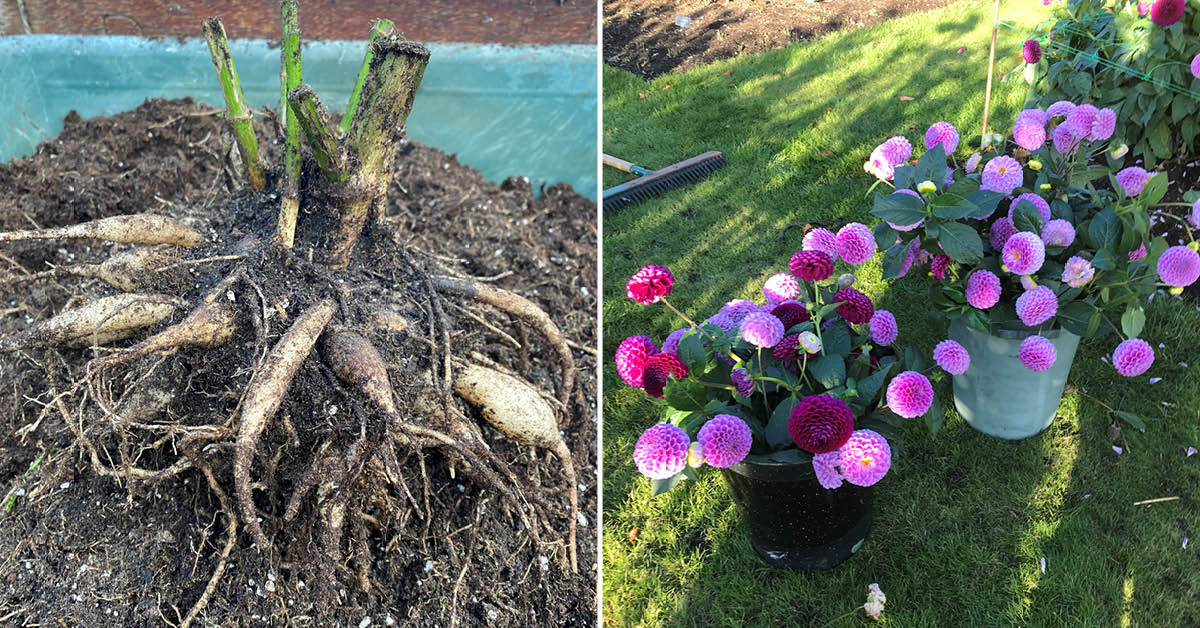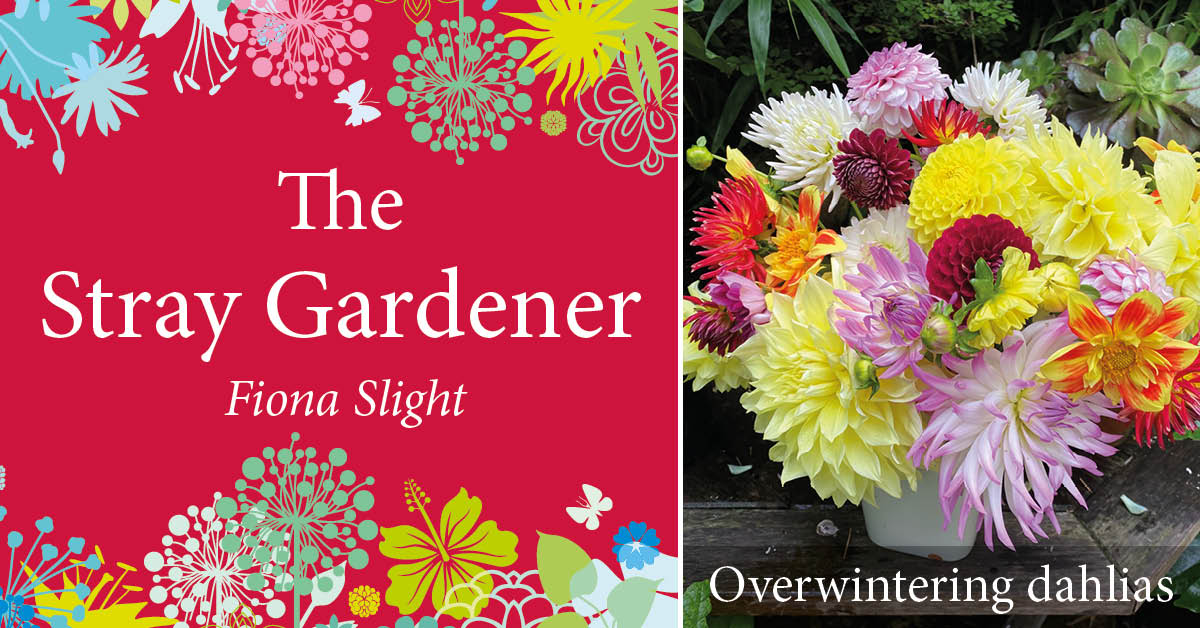 The Stray Gardener is written by Rudding Park’s Kitchen Gardener, Fiona Slight. Fiona has worked in horticulture for more than 30 years in the UK and abroad, and specialises in growing fruit and vegetables for fine dining. This month, Fiona shares her advice successfully overwintering dahlias.
The Stray Gardener is written by Rudding Park’s Kitchen Gardener, Fiona Slight. Fiona has worked in horticulture for more than 30 years in the UK and abroad, and specialises in growing fruit and vegetables for fine dining. This month, Fiona shares her advice successfully overwintering dahlias.
Dahlias are one of my favourite flowers of all time. Back in 1989 in my YTS year (Youth Training Scheme to anyone under 40!), I was introduced to them for the first time. I just fell in love with their bright, blousy colours, shapes and textures – and I have not lost my love for them since then. I started my YTS in September when they were in full flower so alongside learning how to dead head them, I was soon introduced to the skill of overwintering the tender tubers, protecting the plants so they are not killed off by our cold, wet winters.
There are a couple of ways you can overwinter dahlia tubers successfully. Traditionally you would wait until the first frosts had blacked the stems, making the plant go dormant. However, as autumns have become warmer over the years, a job that would once have been carried out in October sometimes now creeps into November. As the flowers have all but stopped being produced, I must confess to getting a bit impatient and cutting down the stems before then and storing them away, which doesn’t seem to do any harm to the tubers.

Dahlia roots and in buckets
The first way of overwintering dahlias involves digging the whole tuber up, removing as much soil as possible, along with any tubers that may have been damaged or are starting to rot off. Let the tubers dry out upside down for a few days, before setting them in boxes or large pots covered in dry compost. Make sure they are stored in a dry, frost free place, and check them every now and again for any signs of rotting off.
I have found that when you dig the tubers up, and you find that they are not as large as they should be, sometimes they will not store well. Potting them with damp (not wet) compost, and keeping them moist, and in a cool, frost-free place over the winter will actually help them to survive better.

Dahlia beds
The second way to overwinter tubers works well if you have planted the tubers in a sheltered, sunny position in fairly well-drained soil. They can be cut down to the ground and then mulched with straw, compost or wood chip. The mulch can then be raked away when the shoots start to grow again in the next year. For extra protection, pin fleece and a waterproof cover over the top to help avoid excessive wetness in the winter. This works especially well with strong growing varieties and can be grown in the ground like this for several years very successfully.
With both of these techniques, a word of warning! Watch out for slugs and snails early in spring as the tubers come back into leaf, especially under the fleece and mulch. Given the right conditions, they can have a wonderful time munching on the new leaves and ruin a clump in a few days. The best thing to do is to check regularly and to ensure there are no hiding places for the slugs nearby. Once the new leaves have got established then generally they will go elsewhere and allow the dahlias to grow away quite happily, ready to produce their wonderful, colourful display again.
5 top tips for October
- Keep picking autumn raspberries. If you have too many and can’t eat them all at once, they freeze really well.
- Cut hedges now, and they will stay neat and tidy till next summer.
- Divide hardy herbaceous perennials to get them settled in before winter.
- Move tender plants such as Pelargoniums, Lemon verbena, Echeverias back inside to protect over winter.
- Rake large amounts of leaves off lawns to avoid them damaging the grass.





